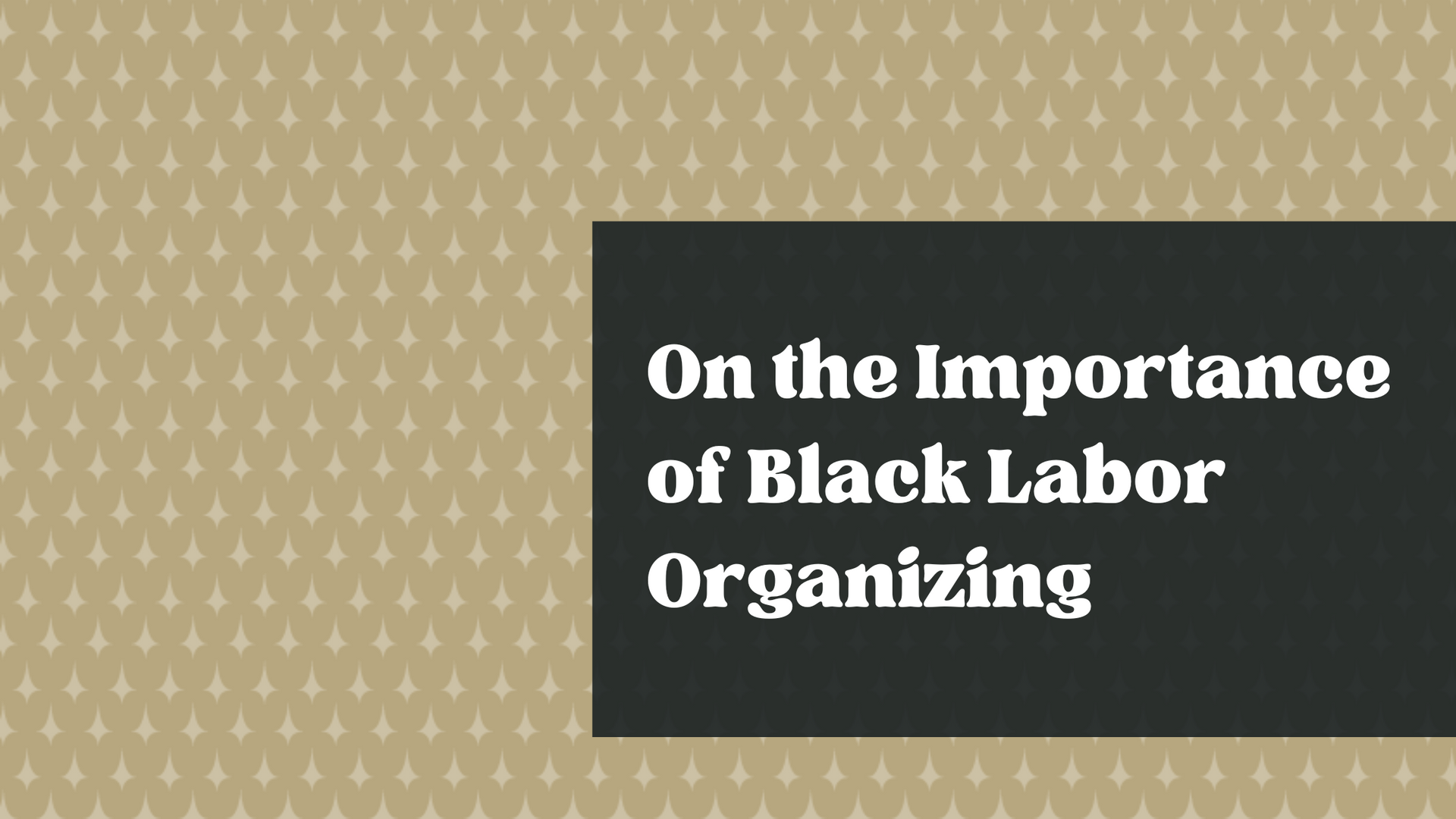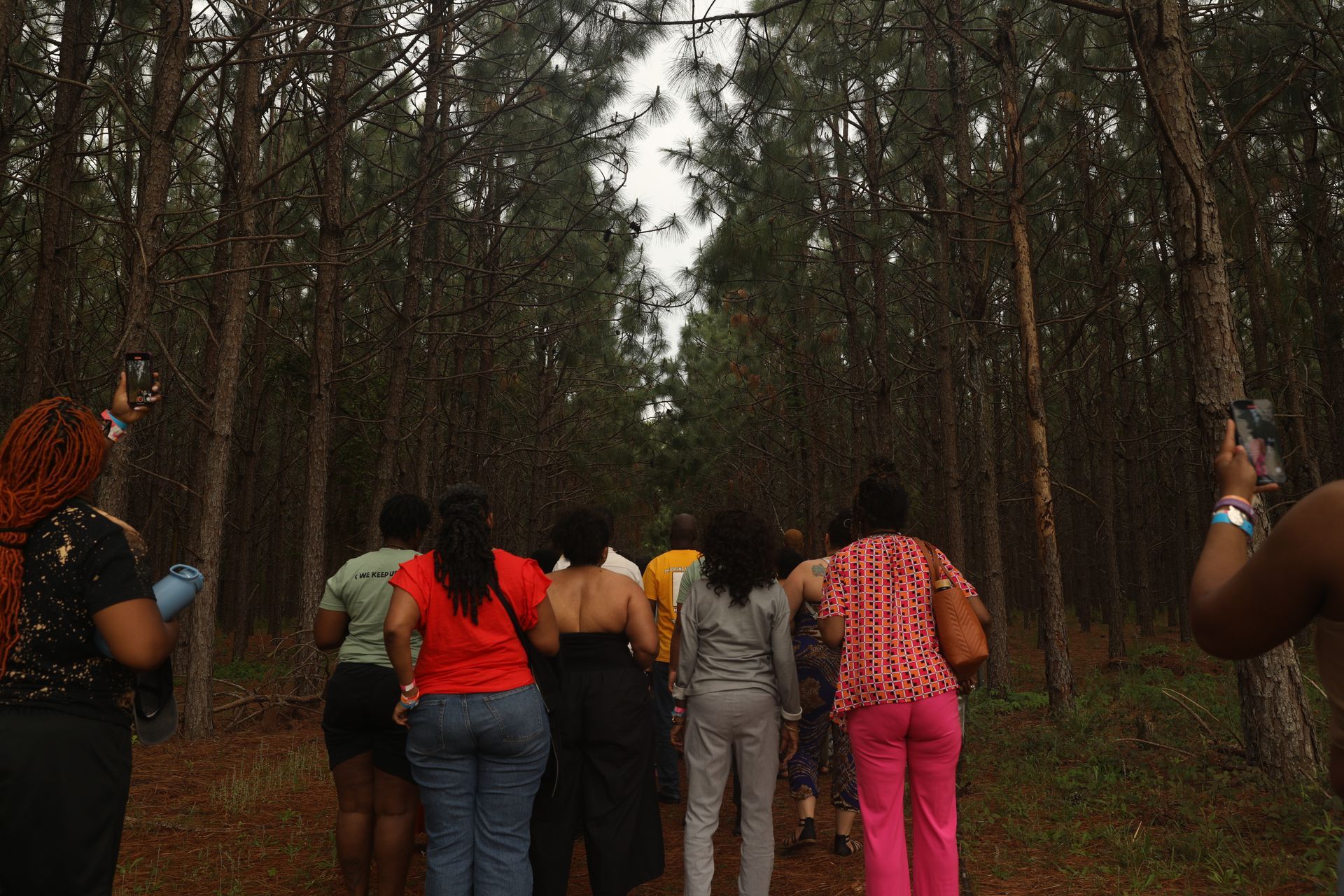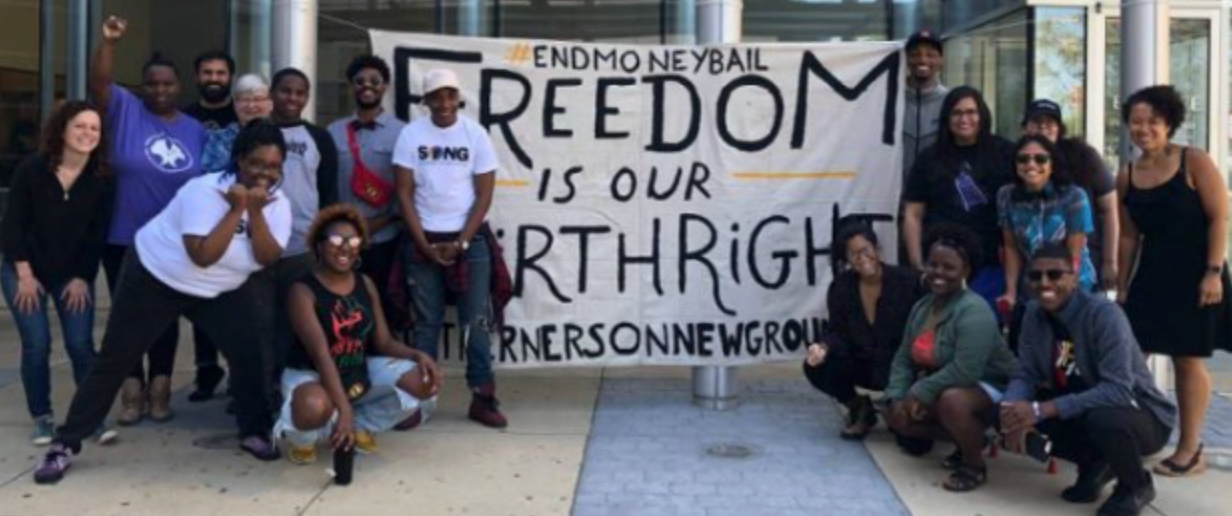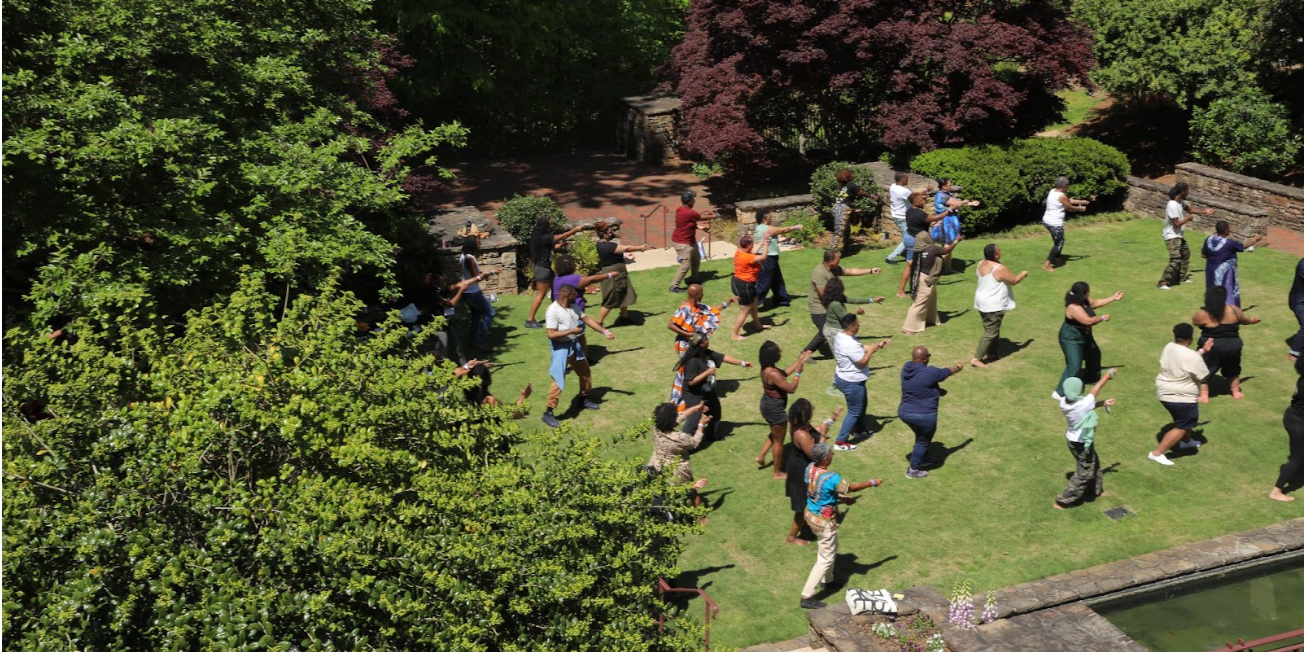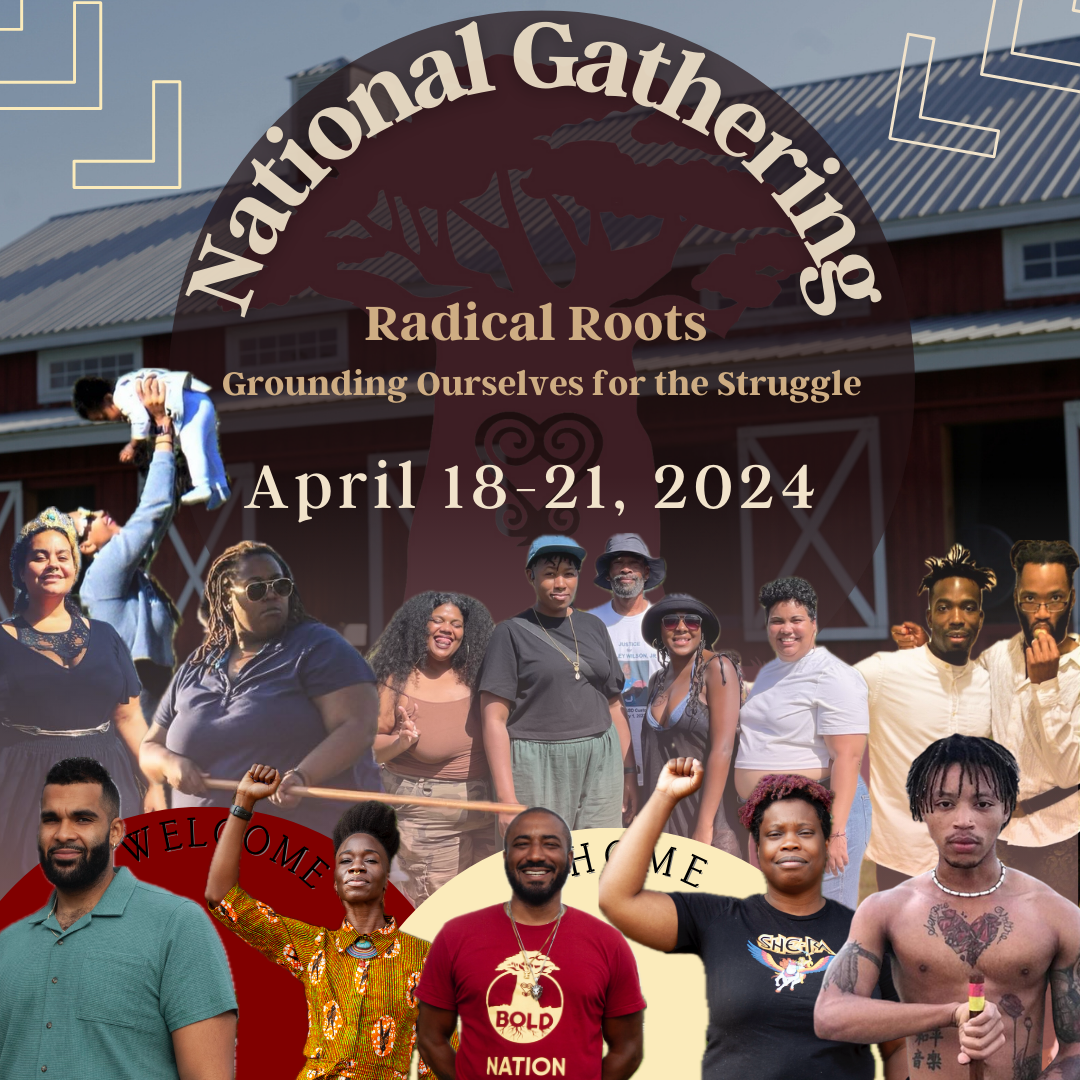Restorative Farming and Racial Justice: Lessons from Resora and New Communities
This Women's History Month, at BOLD, we celebrate the immense life and contributions of Shirley Sherrod. If you don't know about the living legend - Read on. Be Inspired. Grow.
But first, my name is Nikki M.G. Cole, and I serve as the Director of Resource Mobilization and Communications for BOLD. I am a 2012 and 2015 BOLD's Directors and Leads Quilombo School graduate. Thank you for supporting Black organizers like me on our pathways to collective liberation.
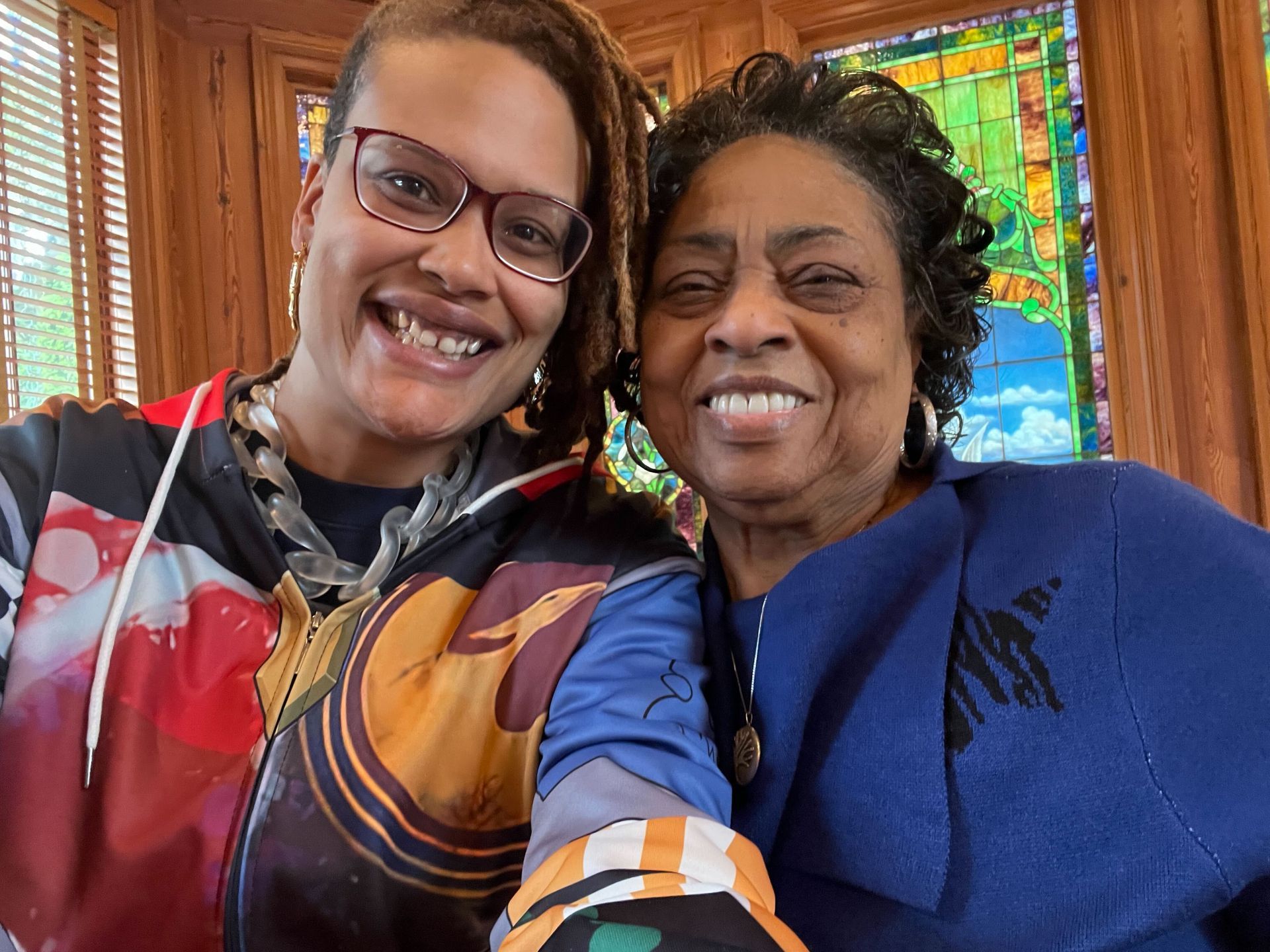
Photo Caption: Shirley Sherrod (right); Nikki MG Cole (left)
I was extremely pleased and honored to meet Ms. Sherrod this past December at Resora, in Albany, Georgia. I was there on a Black Land Collective Strategies learning exchange trip between BOLD, The Embodiment Institute, Restore Forward, and the National Black Food And Justice Alliance. It is with enthusiasm that I share here that all of these organizations are co-led by Black women, and I respect them during this Women's History Month and all year long.
Together, we went to Resora to learn about sustainable farming and just resource mobilization practices, witness the legacy of New Communities, and discuss how, on our individual Black land stewardship journeys, we may add to the ecosystem of safe, restorative, regenerative spaces for the racial and environmental justice movement.
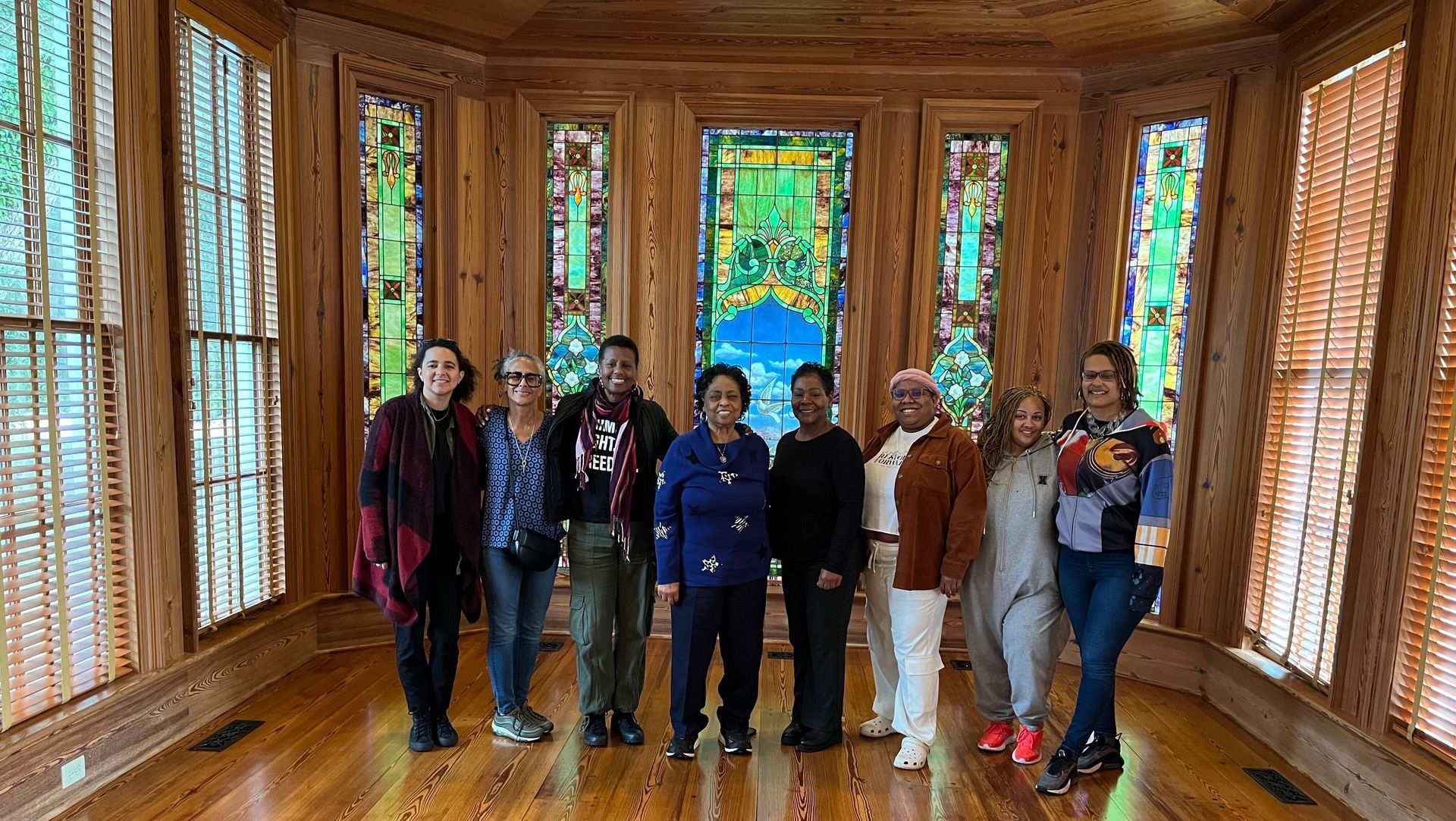
Photo caption: Shirley Sherrod (center), and leaders from the Black Land Collective Strategies Group
But let me tell you about Shirley Sherrod because before I went on this trip, I didn't really know anything about her, so I suspect you may not know much about her either. And that's a shame because she's one of this country's most powerful agents of transformation.
Shirley Sherrod was born in 1947 in Baker County - a small rural farming area in Southwest Georgia. She is the daughter of Gracie and Hosie Miller. Her father, Hosie, was a farmer, land owner, and served as the deacon at their local Baptist church. Shirley grew up on the farm and recalled during our visit to Resora, that it was a hard life, and although she loved her family dearly, she was eager to move up north and get out of Georgia because of the constant threat of white terror and violence. She told us that there was a notorious sheriff in Baker County known as "The Gator" who had killed many Black community members without any kind of accountability or justice.
When Shirley was 17 years old, her father was murdered by the neighboring white farmer over a verbal dispute about wandering cows between their properties. The white farmer shot Sherrod's father in the chest in front of three eyewitnesses but was never prosecuted by the all-white jury. This was a pivotal, traumatic and triggering moment for Shirley and her family. She told us that the pain and injustice of it all gave her no choice but to stay in Georgia and build the power to protect her family, people, and land. She knew that leaving Georgia wouldn't transform anything. The same year her father was murdered, Shirley found a way to continue on to higher education, while her sisters became some of the first Black students to desegregate the all-white high school in their county.
Long story short - Shirley was committed to building people power for positive collective change. She started working for the Student Nonviolent Coordinating Committee (SNCC) on voter rights, where she met her future husband and movement leader, Charles Sherrod. Shirley was an important organizer of the Albany Movement - a critically important and bold move in 1961 to desegregate an entire town at once. While the organizers of the Albany movement didn't have the power to win everything they wanted then, they laid the blueprint for organizers all across the South who would go on to escalate the movement through public bus boycotts, sit-ins, and other peaceful tactics for Civil Rights.
Their work in 1961 also laid the winning groundwork for 1962, when the city of Albany removed all the segregation ordinances from its books. All of their strategic work through SNCC and the Southwest Georgia Project, added to the surge of organized people and public voices who pushed to win the historic 1964 Civil Rights Act.
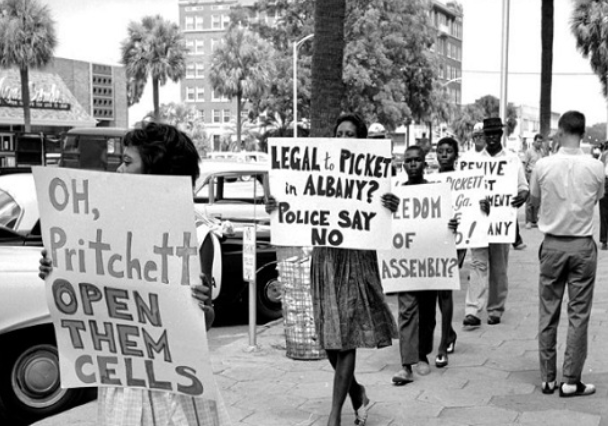
Photo Caption: Organizers and Activists demonstrate for desegregation during the Albany, Georgia Movement.
Knowing that federal legislation only protects people on the ground so much, Shirley and Charles Sherrod continued to organize locally in Georgia to implement change. Together, they set out to create New Communities to protect Black farmers who had lost their land through the Jim Crow era. New Communities is recognized as the original model for community land trust in the United States and for decades has set out to become "a thriving organization that is a global model for community empowerment through agribusiness, education, social awareness, and wealth building."
And that's exactly what I witnessed while visiting Ms. Sherrod and the amazing team of land stewards at Resora. In the middle of December, we walked the lush fields of satsuma oranges and truffle pines… the innovative learning sites for rice growing, beekeeping, and viticulture… we saw their sustainable methods of pecan agroforestry ... and the acres upon acres of old-growth forest. The land is so magical that our group swore we saw a Patronus pop out of the forest one night! We laughed through so much of our time there because the land evoked Black Joy, Resilience, Transformation, and Abundance.
What we learned, though, for real, is that the regenerative farm, old-growth forests, and pond at Resora are a rich ecosystem for bucks, deer, wild hogs, alligators, birds of prey, and so much more, including us! It is beautiful to know and see generations of Black Civil Rights leaders doing their part to protect the environment and mitigate climate change through responsible land stewardship.
What we got to experience at Resora, must not be taken for granted. Resora is the result of years of epic battles for land and dignity in the racism olympics of America. Resora isn't just any plot of land - it was formerly the Cypress Pond Plantation, which used to be owned by one of the largest slaveholders of Georgia.
So the fact that Civil Rights legend Shirley Sherrod stewards Resora today after all she's been through…. that no one lives in the historic plantation house there, but that all the restored slave cabins and dirt roads have been named intentionally after Black heroes from New Communities and the Albany Movement…that one can feel the power of the ancestors and indigenous people who came before us…. And that somehow all of that energy from the past and present blends to generate food, jobs, shelter, event space, educational opportunities, health and wealth for Black people and South Georgia today, all while protecting sacred earth - THAT'S TRANSFORMATIONAL. That is an example of what we at BOLD call Black Love.
And that's the kind of transformation that BOLD and our friends through the Black Land Collective Strategies get excited about, want to honor and continue in the giant footsteps of.
So we invite you today to continue learning with us on our journey as responsible land stewards, and to celebrate the living legacy of Shirley Sherrod. To Learn more about Ms. Sherrod this Women's History Month, I recommend watching Shirley tell her story in her own words and checking out the websites that officially tell the histories of The Southwest Georgia Project, New Communities, and Resora.
I look forward to keeping you updated about BOLD's land stewardship journey and programs this year. Thanks for your time, love, ongoing solidarity, and support!
And an EXTRA SPECIAL THANK YOU to all of the funders who have supported the Black Land Collective Strategies learning exchanges and group - including Common Counsel, The Ford Foundation, Solidaire Network, Kataly Foundation, and Panta Rhea Foundation. We send you much love and gratitude!
Happy Women's History Month everyone!
Nikki MG Cole
BOLD Director of Resource Mobilization
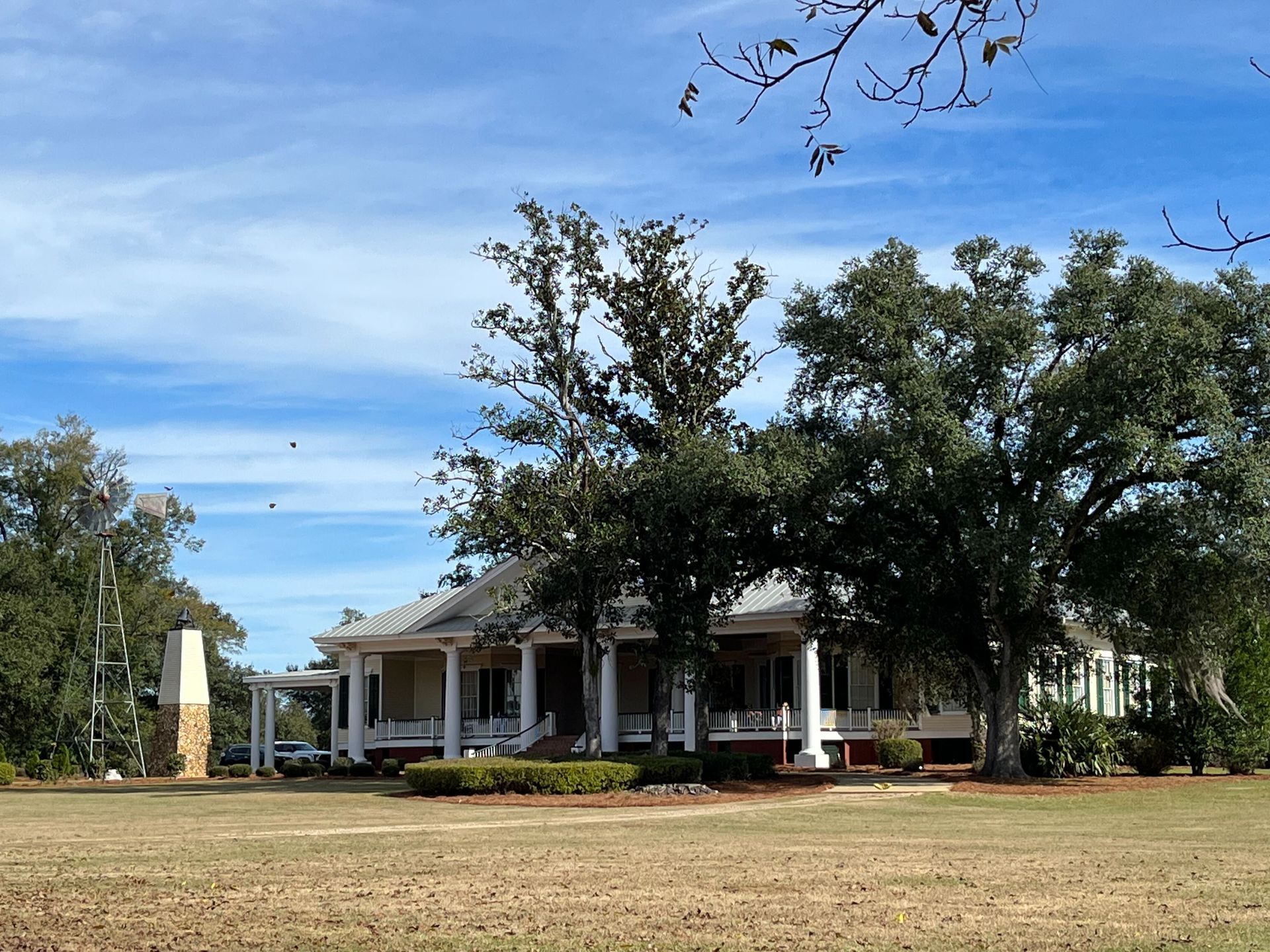
Slide title
Write your caption hereButton
Slide title
Write your caption hereButton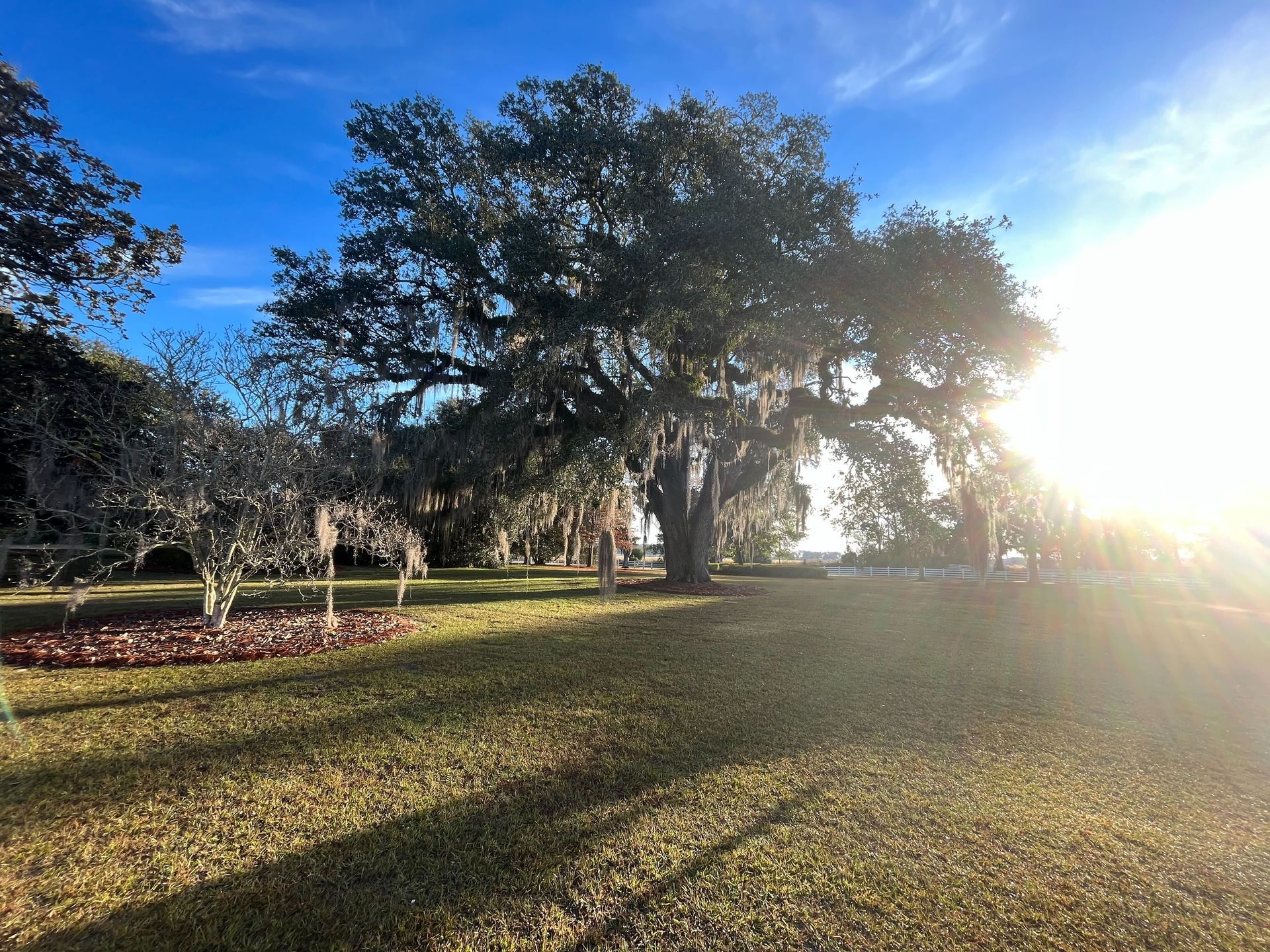
Slide title
Write your caption hereButton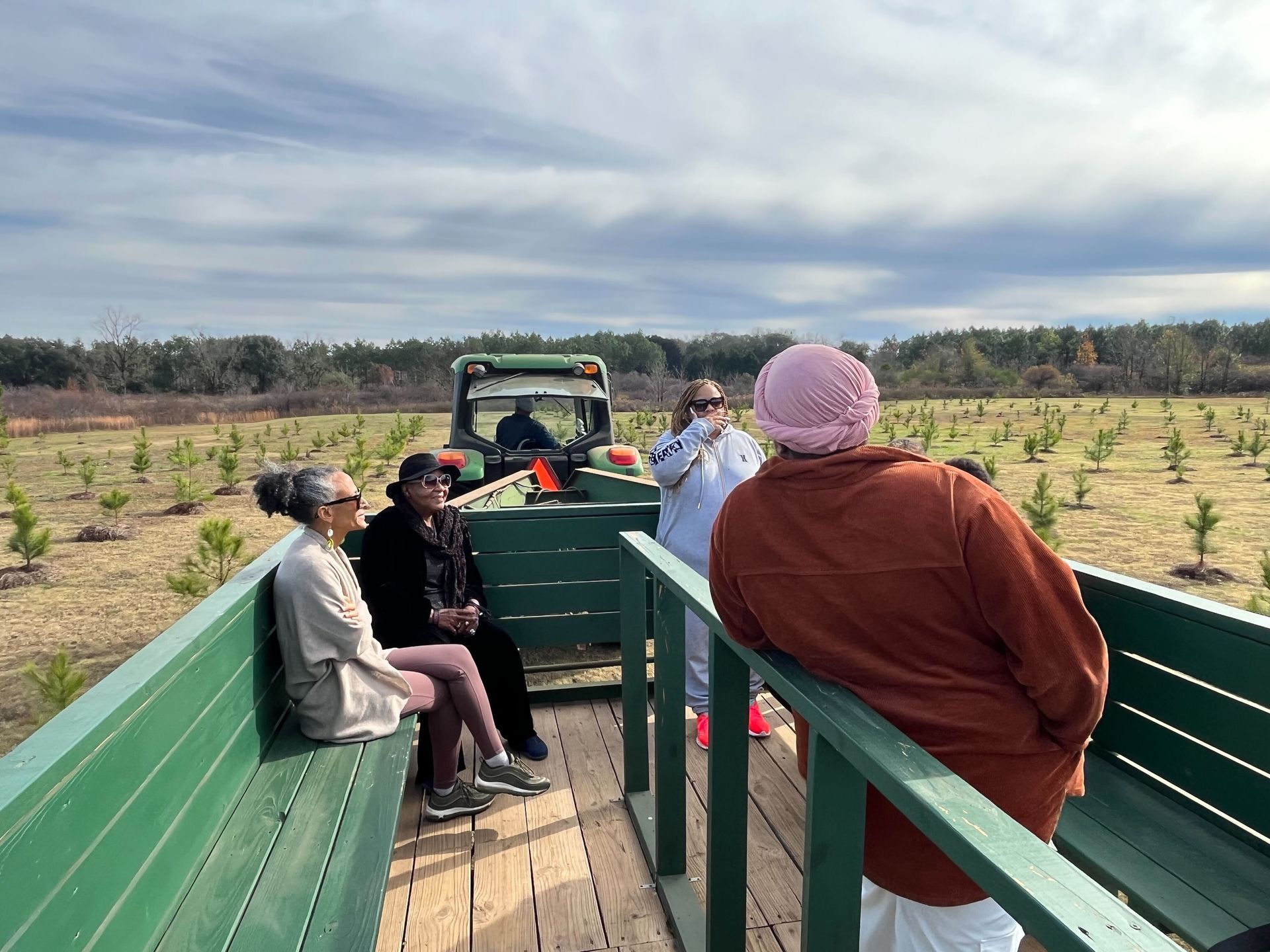
Slide title
Write your caption hereButton
Slide title
Write your caption hereButton
Slide title
Write your caption hereButton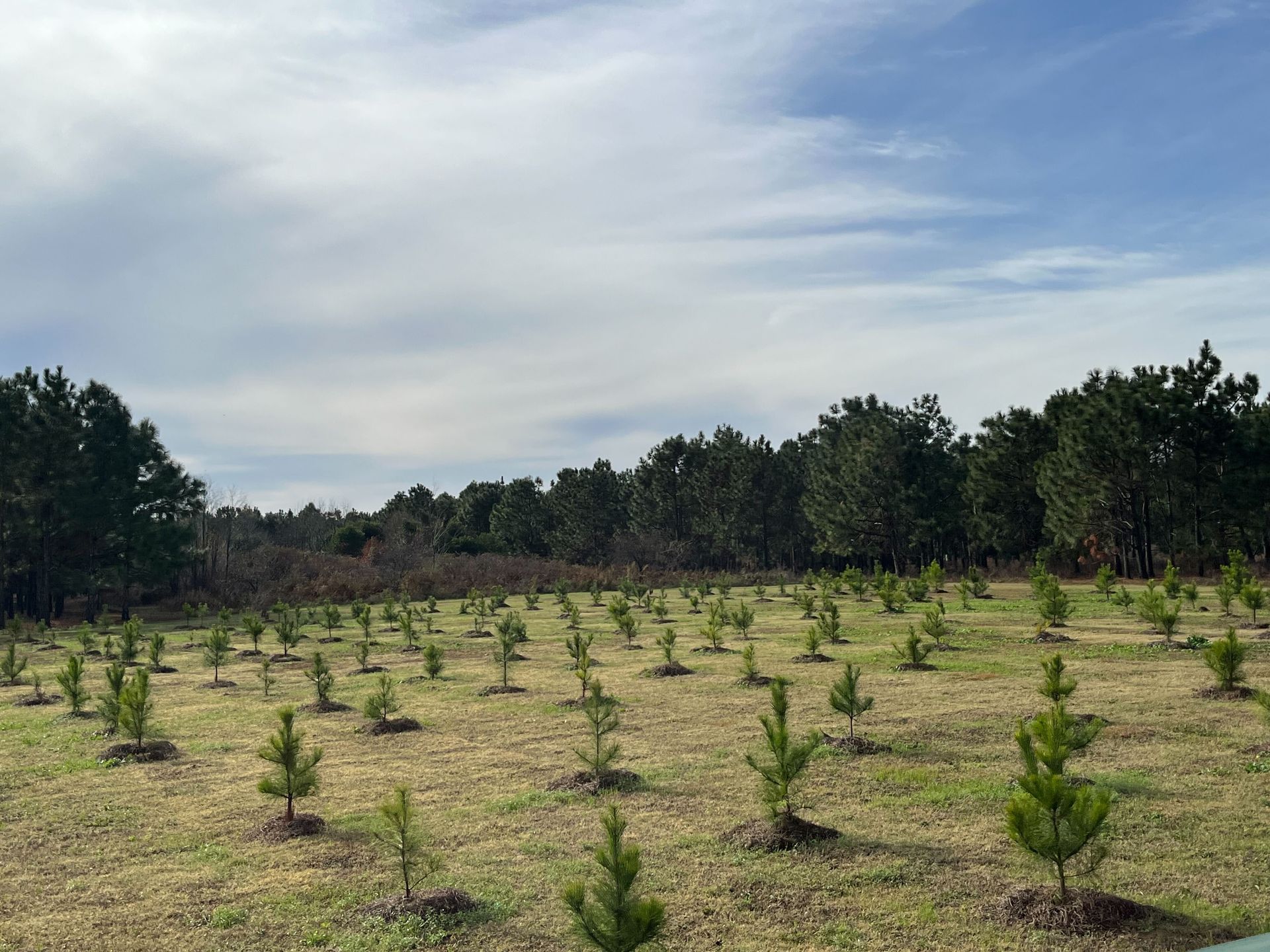
Slide title
Write your caption hereButton
